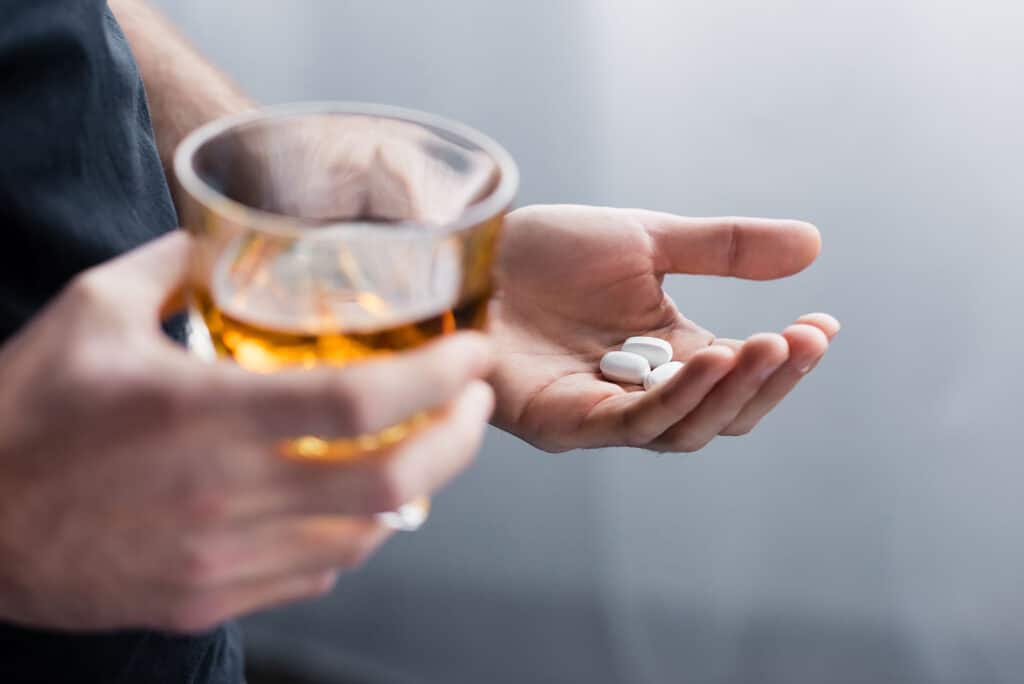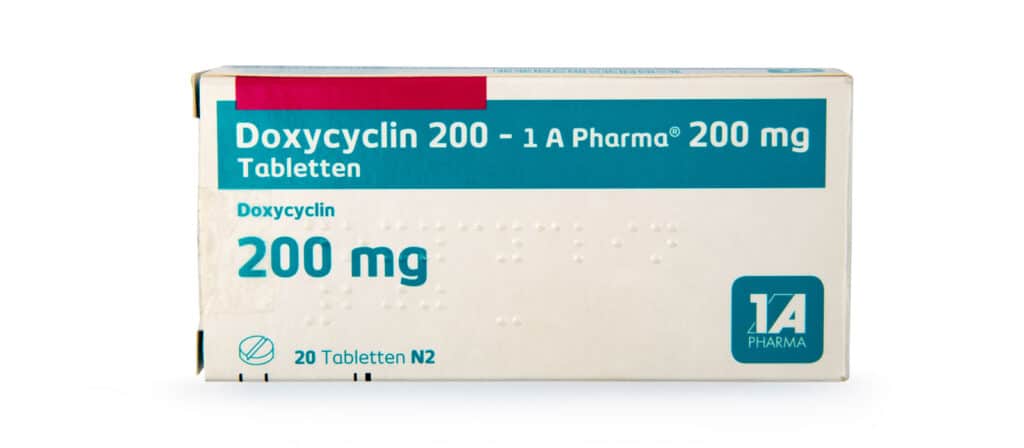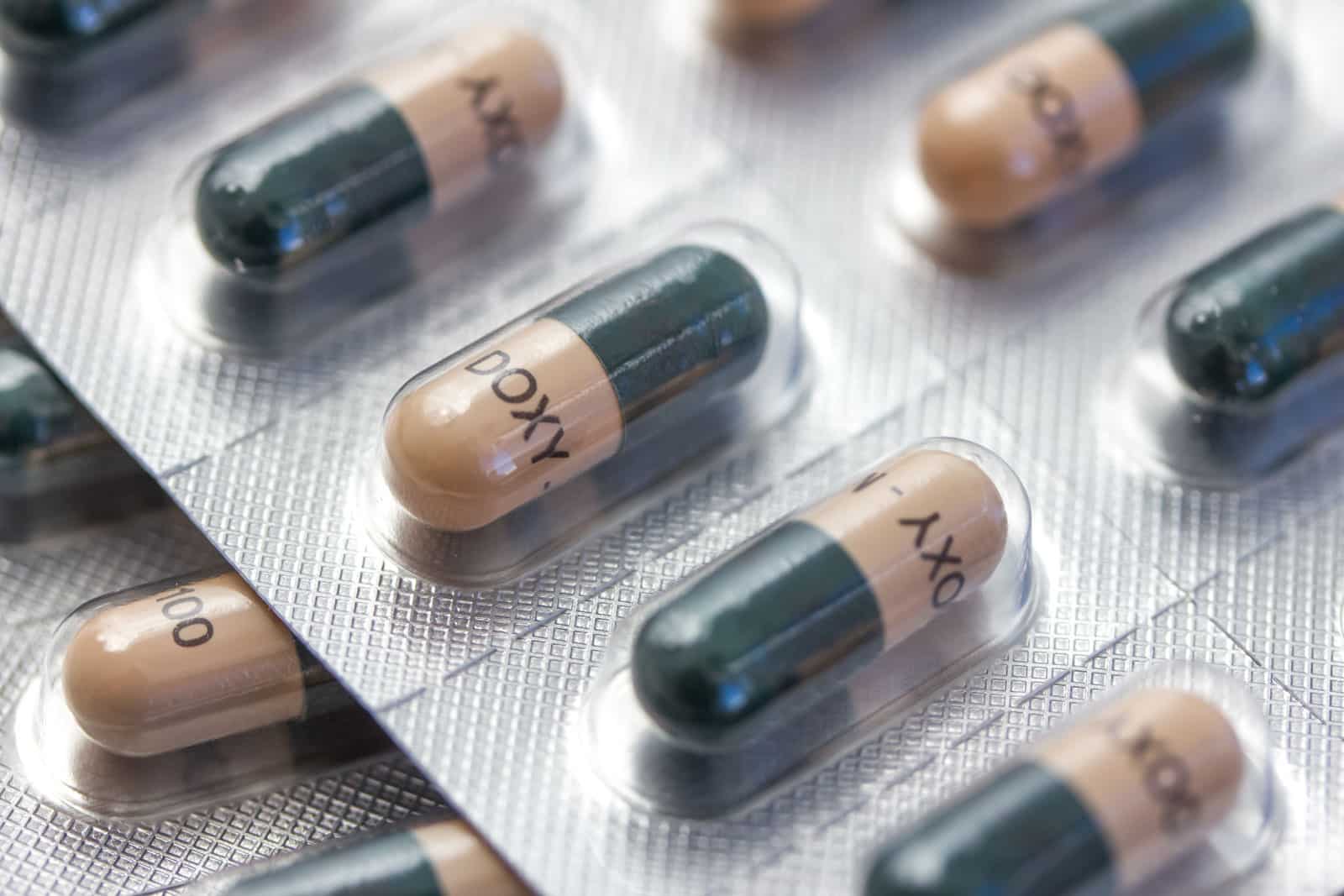Antibiotics are one of the most widely prescribed medications for illnesses such as pneumonia, acne, rosacea and other skin conditions, some sexually transmitted infections (STIs) like chlamydia, urinary tract infections, malaria, and lyme disease. It can also be prescribed to individuals who may have an allergic reaction to penicillin, to treat certain types of food poisoning.
Chances are, if you have ever had a bacterial infection, you’ve taken a one-to-two-week course of treatment. During that time, you may have gone out to dinner with friends and had a drink or two. Maybe you mentioned the drug you were taking and panicked when they warned you that you can’t drink when you take antibiotics. Too late, the damage was done, and you lay awake all night waiting for the onset of the deadly reactions that your friends warned you about. Hopefully, it was a false alarm, and you suffered no lasting consequences.
While there are some antibiotics like Bactrim and Tinidazole that may have severe reactions when mixed with alcohol, doxycycline is not one of them. When combined with alcohol, this particular drug does not appear to cause bad reactions in most people. However, that doesn’t mean that doctors recommend washing the medicine down with a swig of alcohol. You may not throw up or experience stomach cramps, but alcohol can diminish the effectiveness of the drug. This reduced efficacy is particularly true for chronic or heavy drinkers.
Table of Contents
- Can You Drink Alcohol While Taking Doxycycline?
- How Long Should You Wait to Drink Alcohol After Stopping Doxycycline?
- What are Side Effects of Doxycycline?
- What Should Not Be Taken with Doxycycline Besides Alcohol?
- 1. Antacids, Calcium, and Magnesium Supplements
- 2. Iron Supplements and Multivitamins with Iron
- 3. Metronidazole (Another Antibiotic)
- 4. Phenytoin and Other Seizure Medications
- 5. Blood Thinners (Warfarin and Others)
- 6. Isotretinoin (Accutane) and Retinoids
- 7. Oral Contraceptives
- 8. Breastfeeding Considerations
- Conclusion
- FAQ
Can You Drink Alcohol While Taking Doxycycline?
No, you should avoid alcoholic beverages while taking doxycycline, as it can reduce the drug’s effectiveness and increase side effects like nausea, dizziness, and liver toxicity.
The liver processes all the blood that passes through the intestines and the stomach. It metabolizes drugs and alcohol into components that your body can more easily use. Drinking alcohol with the drug may slow the metabolic breakdown and absorption of the drug since it’s now having to work twice as hard.

There are reports in the literature that doxycycline may cause liver problems and failure. Because chronic alcohol use is also associated with liver damage, experts do not recommend this drug for individuals who are heavy drinkers. If a chronic user does need this antibiotic, they may require a higher-than-normal dose because of existing liver damage.
People start taking doxycycline because they have some type of infection, and the drug gives the autoimmune system extra ammunition to fight the germ. Heavy drinking, on the other hand, is associated with a weakened immune system and a increased risks of bacterial and viral infections. When you drink alcohol, the liver has to metabolize it, and this process creates by-products that increase inflammation in your system. It should be clear that simultaneously drinking and dosing is not productive. The drug may not work as effectively as it should if the alcohol counteracts the body’s autoimmune defenses.
Drinking alcohol while taking doxycycline may not put you in the hospital, but it might result in one heck of a hangover. Since common side effects of the drug, such as headache and nausea, may already be making you feel out-of-sorts, a next-morning hangover is going to exacerbate your misery. Do yourself a favor and stay away from the hard stuff while you’re taking this medicine.
How Long Should You Wait to Drink Alcohol After Stopping Doxycycline?
While casual and moderate alcohol drinkers may have a drink or two without worrying too much about side effects, the same is not true for heavy drinkers or individuals with liver disease. As previously mentioned, the likelihood of diminished liver functions puts this group of patients in a separate category.
It takes two-to-five days for doxycycline to clear your system. So, that’s how long individuals with diminished metabolic capacities should wait before resuming drinking. Because the drug stays around for so long, it’s never a good idea for people in this category to skip a dose so that they can take a drink. You don’t want to degrade your autoimmune system while you are fighting an infection.
What are Side Effects of Doxycycline?
Doxycycline, a tetracycline antibiotic, is known to cause photosensitivity in some patients. Because of this, the prescribing physician or pharmacist warns the patient to avoid extended time in the sun and use sunscreen to prevent developing a rash-like skin inflammation.

Other common adverse effects include the following:
- Upset stomach, stomach pain, and Nausea
- Dry mouth
- Anxiety
- Back pain
- Mouth, nails and eyes color changes
- Vaginal discomfort or discharge
You should seek medical assistance if you experience any of the following symptoms:
- Difficulty breathing
- Fever
- Extreme blood pressure changes
- Chest pain
- Affected vision
- Yellow teeth
- Hives
- Headache
- Unusual bruising
Every patient is different. When you pick up the medicine at a pharmacy, there is usually a sheet included in the package that contains a list of reported adverse reactions. Read it before you start your treatment, so you’ll recognize the signs.
What Should Not Be Taken with Doxycycline Besides Alcohol?
Doxycycline is a broad-spectrum antibiotic commonly used to treat bacterial infections, but certain drug interactions and substances can affect its effectiveness or increase potential risks. Here are some things to avoid while taking doxycycline:

1. Antacids, Calcium, and Magnesium Supplements
Why? Antacids and supplements containing calcium, magnesium, or aluminum can bind to doxycycline, reducing the body’s ability to absorb it properly.
What to Avoid:
- Calcium supplements
- Magnesium supplements
- Antacids (e.g., Tums, Maalox)
- Dairy products (milk, yogurt) – though less severe, they may also reduce absorption.
Solution: Take doxycycline 2 hours before or 4 hours after consuming these products.
2. Iron Supplements and Multivitamins with Iron
Why? Iron binds to doxycycline and reduces its absorption.
Solution: Take iron supplements separately from doxycycline by a few hours.
3. Metronidazole (Another Antibiotic)
Why? Combining doxycycline with metronidazole may increase the risk of toxicity and side effects like nausea, dizziness, and neurological issues.
Solution: If both antibiotics are necessary, consult a healthcare provider for monitoring.
4. Phenytoin and Other Seizure Medications
Why? Phenytoin (Dilantin) and carbamazepine (Tegretol) can speed up doxycycline metabolism, making it less effective.
Solution: A healthcare professional may need to adjust the dosage if taken together.

5. Blood Thinners (Warfarin and Others)
Why? Doxycycline can enhance the effects of blood thinners, increasing the risk of bleeding.
Solution: If taking warfarin or similar drugs, inform your doctor for monitoring.
6. Isotretinoin (Accutane) and Retinoids
Why? Combining doxycycline with isotretinoin or other retinoids can increase the risk of intracranial hypertension (high pressure in the skull), which can lead to headaches and vision problems.
Solution: Avoid combining unless absolutely necessary under medical supervision.
7. Oral Contraceptives
Why? While doxycycline is not a major risk for birth control failure, some studies suggest it may slightly reduce effectiveness.
Solution: Use an additional backup contraceptive method if needed.
8. Breastfeeding Considerations
Why? Doxycycline can pass into breast milk and may affect an infant’s bone and teeth development.
Solution: Breastfeeding mothers should consult their healthcare provider before taking doxycycline.
While doxycycline is a highly effective antimicrobial agent, it interacts with several supplements, medications, and food items that can either reduce its effectiveness or increase toxicity risks. To ensure proper treatment, always follow your healthcare professional’s guidance and avoid potential drug interactions.

Conclusion
If your alcohol consumption is out of control and you want to stop but can’t, the caring staff at the Long Island Treatment Center can put you back on the right path. Our facility offers different levels of care, ranging from early intervention to hospitalization, all guided by experienced healthcare professionals. We customize a treatment plan for each individual, with options including detoxification, individual counseling, and group therapy sessions. For those who work during the day, we also offer an evening intensive outpatient program. Contact us today if you or someone you know struggles to control their drinking—our compassionate healthcare providers are here to help, without judgment.
FAQ
What Is Doxycycline?
How long after doxycycline can i go in the sun?


